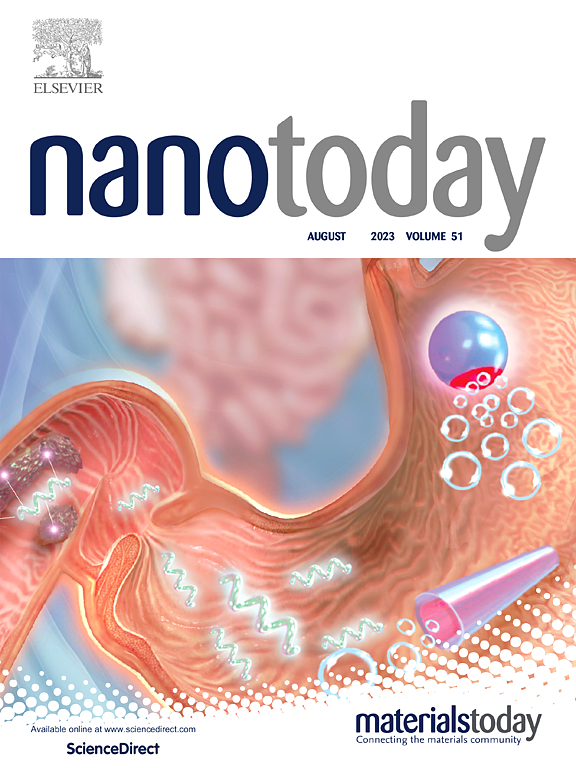基于能量的手术产生的碳化粒子会促进卵巢癌的发展
IF 13.2
1区 材料科学
Q1 CHEMISTRY, MULTIDISCIPLINARY
引用次数: 0
摘要
癌症患者术后面临肿瘤复发和转移的高风险。据报道,手术应激是癌症复发和转移的重要诱因。近年来,基于能量的手术设备已成为最常用的手术工具。然而,目前还缺乏对使用能量手术设备是否会促进残留肿瘤发展的研究。本研究旨在探讨与传统手术相比,能量手术对肿瘤生长的影响。结果表明,与传统手术相比,能量手术更有可能促进肿瘤生长。进一步研究发现,能量手术设备在组织燃烧过程中产生的碳化颗粒是一种强诱导剂,能在体内和体外强烈诱导 M2 样巨噬细胞极化。此外,碳化粒子还能在体内诱导免疫抑制性肿瘤微环境,促进肿瘤生长,这一点与能量手术类似。这些研究结果表明,能量手术过程中产生的碳化粒子导致了残留肿瘤细胞的发展。因此,最好采取措施消除或防止能量手术过程中产生碳化粒子。本文章由计算机程序翻译,如有差异,请以英文原文为准。
Energy-based surgery generated carbonized particles promote the development of ovarian cancer
Cancer patients face a high risk of tumor recurrence and metastasis after surgery. Surgical stress has been reported to be an important trigger for cancer recurrence and metastasis. Energy-based surgical devices have become the most commonly used surgical tool in recent years. However, there is a lack of studies investigating whether using energy-based surgical devices promotes the development of residual tumors. This study aimed to examine the impact of energy-based surgery on tumor growth in comparison to conventional surgery. Results indicated that energy-based surgery is more likely to promote tumor growth than conventional surgery. Further investigation revealed that the carbonized particles produced by energy-based surgical devices during tissue combustion are robust inducers, strongly inducing the polarization of M2-like macrophages in vivo and in vitro. Additionally, carbonized particles induced an immunosuppressive tumor microenvironment in vivo, promoting tumor growth similarly to energy-based surgery. These findings suggested that the production of carbonized particles during energy-based surgery contributed to the development of residual tumor cells. Therefore, it is advisable to implement measures to either eliminate or prevent the production of carbonized particles during energy-based surgery procedures.
求助全文
通过发布文献求助,成功后即可免费获取论文全文。
去求助
来源期刊

Nano Today
工程技术-材料科学:综合
CiteScore
21.50
自引率
3.40%
发文量
305
审稿时长
40 days
期刊介绍:
Nano Today is a journal dedicated to publishing influential and innovative work in the field of nanoscience and technology. It covers a wide range of subject areas including biomaterials, materials chemistry, materials science, chemistry, bioengineering, biochemistry, genetics and molecular biology, engineering, and nanotechnology. The journal considers articles that inform readers about the latest research, breakthroughs, and topical issues in these fields. It provides comprehensive coverage through a mixture of peer-reviewed articles, research news, and information on key developments. Nano Today is abstracted and indexed in Science Citation Index, Ei Compendex, Embase, Scopus, and INSPEC.
 求助内容:
求助内容: 应助结果提醒方式:
应助结果提醒方式:


